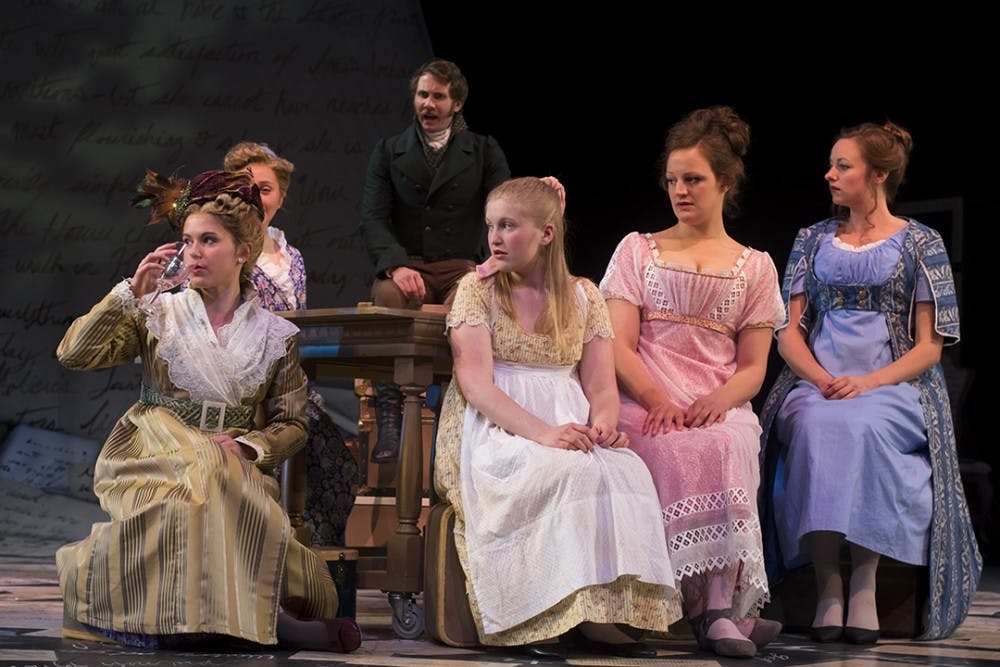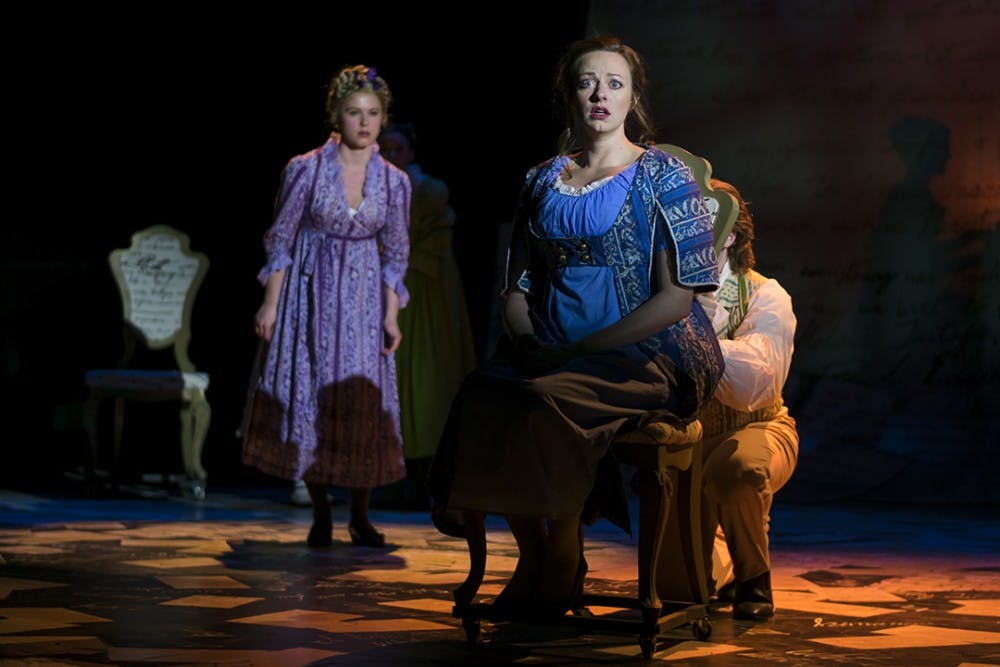While many may have the preconception that the literary works of Jane Austen are outdated, director Lindsay Rae-Taylor hopes to prove them wrong in her upcoming production of Austen’s classic novel “Sense and Sensibility."
Austen’s novel tells the story of sisters Marianne and Elinor Dashwood, who are whisked away from a life of comfort and security into a world of financial uncertainty after their father’s death lowers their social status. Throughout the play, the sisters struggle to cope with their new living situation and their respective pursuits of love.
“The play asks us how we respond to social pressure — do we follow all of the rules like Elinor or do we break all the rules, like Marianne,” Rae-Taylor said. "It speaks to our current "shaming" culture that we all experience through social media."
Adapted for the stage by Kate Hamill in 2014, Hamill’s version of Austen’s novel reimagines the tale of the Dashwood sisters through a modern lens, while maintaining the pre-Victorian setting of the source material. “Sense and Sensibility” is one of several classic novels that Hamill has adapted in order to fulfill the need for female-driven stories in theater.
This is Taylor's, a second-year M.F.A. directing candidate, third time directing at USC, but her first time directing at Drayton Hall Theatre. While she admits that before this experience she was unfamiliar with Austen’s work, she promises that Hamill’s adaptation will surprise people as “the show feels very contemporary, despite its Austen backdrop.”
“I think that people who don’t know Austen very well … are of the opinion that it is sleepy and stuffy. Kate Hamill’s adaptation is the opposite of that,” Taylor said. “She highlights the humor and the love of the story, with a cinematic script that jumps from place to place at a gallop.”

The show, which premieres on April 13, has been in rehearsal since February, and Taylor describes the process as “ensemble storytelling at its best.” For much of the cast and crew, Hamill’s cinematic approach to the story is very fast-paced and presents one of the biggest challenges of all: keeping up with it. Throughout the entirety of the show, the cast of 15 actors remain onstage where they complete complex scene transitions in order to create a “circus-like experience.”
“They reflect the major theme of the story, which is love. Our team is comprised of positive, willing artists who have committed fully to this project … They continually brought energy and ideas to the rehearsal room, which makes the piece beautifully collaborative,” Taylor said.
Libby Hawkins, a second-year M.F.A acting candidate, plays the lead role of Elinor Dashwood, the elder sister to Marianne and the more reserved of the two. Although Hawkins finds the task of leading the play to be very demanding, she believes that the experience has “been really good for [her].”
“I think the biggest challenge about playing Elinor is balancing her demure, stoic, sensible exterior with her warm, passionate, feeling interior. I want the audience to love her as much as I do, so finding that balance of sense and feeling is important.” Hawkins said.
Kimberly Braun, a second-year M.F.A acting candidate, plays Elinor’s eccentric, younger sister Marianne who Braun describes as the character who "grows the most during the play.”
“I'd like to think I'm Marianne at the end of the play, with a little more experience and balance. She gives me energy and is one of the most fun roles I've played — she demands concentrated presence and playfulness,” Braun said.
Like Hawkins, Braun agrees that Taylor has been a very inviting presence on set and was someone she enjoyed working with. Braun also praised some of Taylor's techniques and decisions in putting the show together.
"She had elevated the corset-bound flowery language to a dynamic timeless story of falling in love and sisterhood.”
With just a few weeks until opening night, Taylor believes that the focus on love and sisterhood in “Sense and Sensibility” makes it the perfect show to welcome both spring and a changing atmosphere within our culture.
“We recognize the relationships between the characters and empathize with them, almost forgetting the pre-Victorian setting. Hamill’s adaptation is a major part of what makes it relevant today,” Taylor said. “Her mission of writing plays to provide more opportunities for women feels on par with the women’s marches—women rising up and taking control of their destiny by demanding change.”

